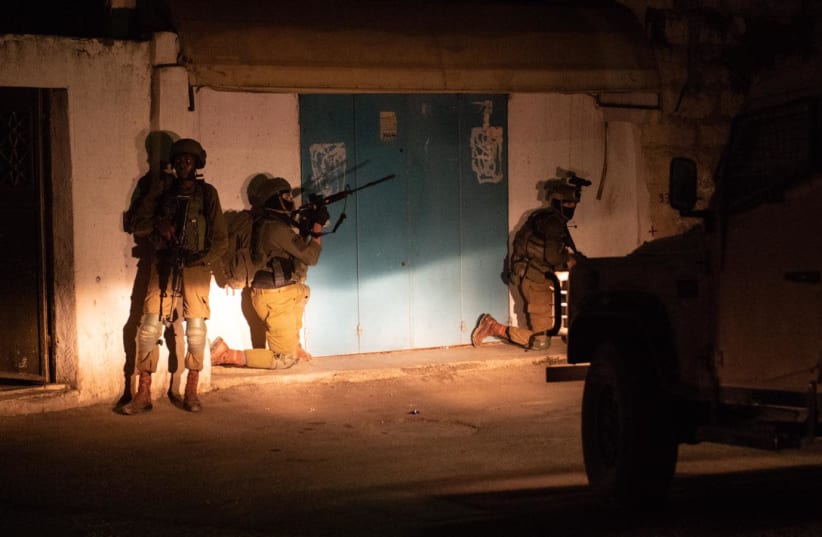Their comments were delivered during a meeting in Brussels hosted by Ruissen in his capacity as chair of the EU Parliamentary Israel Allies Caucus. Attendees heard from Itamar Marcus, director of Palestinian Media Watch (PMW), who presented the findings of his organization’s recent research paper titled, “Two loopholes in EU anti-terror laws and regulations.”Delivering the findings via video, Marcus explained that a chain of transfers exists, which effectively funnels money from EU taxpayers to terror organizations that carry out attacks on Israeli citizens.Hundreds of millions of euros are donated annually by the EU to the Palestinian Authority. Approximately 50 million euros each quarter are passed on by the PA to the Palestine Liberation Organization, which in turn finances organizations such as the Al-Aqsa Martyrs Brigade, which has carried out suicide attacks in Israel.Marcus’s paper explains that in 2017, the European Union adopted a directive declaring acts of terrorism “one of the most serious violations of [...] human rights and fundamental freedoms on which the Union is founded.” The directive criminalized a range of terror activities, including terror financing within EU countries, but did not demand that entities outside the EU in receipt of EU funding refrain from terror-related activities criminalized within the EU. In addition, while it stipulated that NGOs that receive EU funding may not fund terror, no such prohibition is attached to states or non-state entities who receive funding, giving them free rein to fund terror.“The EU criminalized a long list of terrorist support activities in 2017,” Marcus said. “But the EU is giving money to the PA, which almost every day carries out activities supporting terrorism. If the PA were to conduct such activities in Brussels, the perpetrators would end up in jail. How can the EU finance terrorists outside the EU who would be imprisoned in the EU? Why do non-EU citizens not deserve the same protection against terror that EU citizens deserve?”RUISSEN HIGHLIGHTED the EU’s recent decision to defund Palestinian NGO Badil after it refused to sign an anti-terror clause in the funding contract. But, he added, “non-European governments and government agencies that receive EU money are slipping through the loopholes of the law.”Calling for a thorough investigation and full implementation of existing EU and international laws prohibiting terror financing, he added, “It is very bizarre that this route is not prohibited.”Weimers was in agreement with his colleague.“Terrorism and incitement run entirely counter to peaceful conflict resolution,” he said. “If and where loopholes exist in EU counter-terrorism financing legislation, they must be closed immediately. It is also our moral obligation as MEPs to ensure that no taxpayer’s money is funneled in support of terrorism.”The calls follow an order given in May by a senior European Union official to conduct an investigation into whether EU funds are being used to fund Palestinian terror.“There is no terror financing from EU funds, as long as there are EU funds that will not be happening, this will not be tolerated, and if it happens, it will be rectified,” said EU enlargement commissioner Olivér Várhelyi. “And I will see it to it myself that it is done and delivered.”The investigation appeared to bear fruit last week, when EU officials wrote to the Badil Resource Center for Palestinian Residency and Refugee Rights informing them that a 1.7 million euro grant for a three-year project, titled “Mobilizing for Justice in Jerusalem,” had been canceled.But Leo van Doesburg, Israel Allies Foundation’s European representative and European Christian Political Movement director for European Affairs, said more needed to be done.“Although the European Union is making positive steps to avoid that European funding goes to NGOs supporting terrorism, this report shows that there are still loopholes in the framework of EU support of the Palestinian Authority,” he said. “It is important to make clear that we do not accept any EU funding for the finance of Palestinian terrorism. The safety of Israel and its citizens should be a priority of the EU’s policy on the matter.”Marcus, meanwhile, urged the parliamentarians not to get bogged down in the details of funding chains and money transfers.“It doesn’t matter if it’s not EU money funding terror glorification,” he told The Jerusalem Post. “The EU should not be funding the PA when their activities have been criminalized by the EU. Why would they want to support people who they determined in their own laws are terror supporters?”We call upon the @EU_Commission to better regulate subsidies to non-EU governments. According to a report of @palwatch, Palestinian authorities finance terrorist attacks on Israel with EU money. The citizens of Israel should be protected & not put at risk. @hjaruissen @weimers pic.twitter.com/u3CkWMpQyl
— ECR Group (@ecrgroup) June 23, 2020
MEPs call for further investigations into EU funding of Palestinian terror
The PA passes around €200 million Euros received from the EU on to the PLO annually, which in turn distributes some of the money to terror groups.
